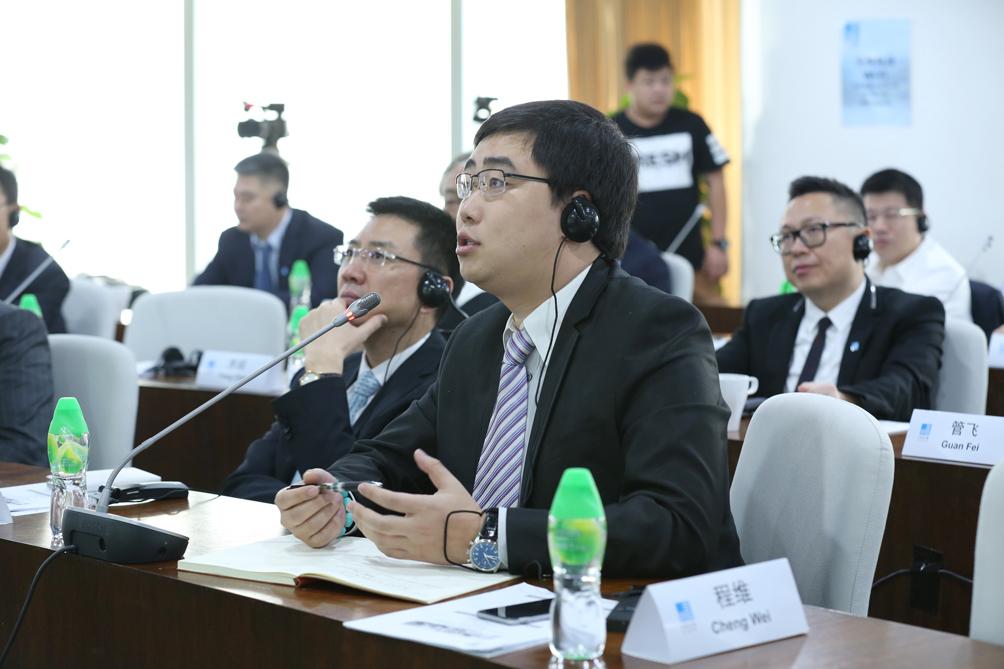Cheng Wei is the CEO of Didi Chuxing Technology Co – one of China’s largest private car hailing, taxi hailing and bike sharing transportation services. He graduated from CKGSB’s Business Scholars Program.
In this new alumni series, we track down CKGSB’s most influential graduates, many of whom have gone on to lead unicorn companies – privately held companies valued at USD $1 billion or more. According to CB Insights – a global platform which provides authoritative and up-to-date information on the world’s billion-dollar private companies – China has created a total of 217 unicorn companies between 2017 to 2021. Thirty-nine (or 18%) of these companies are run by CKGSB alumni, including 35 companies where CKGSB alumni are founders or co-founders, and 4 companies where they serve as the chairman, CEO or president.
As China’s leading business school, it’s not surprising that CKGSB has been able to produce so many business leaders playing a pivotal role in China’s economic development. More than 18,000 successful entrepreneurs, industry leaders and executives of multinational corporations have chosen to study at CKGSB for the original China insights, world-class faculty and peer-to-peer learning with China’s movers-and-shakers. More than half of CKGSB’s alumni are at the CEO or Chairman level and, collectively, lead one-fifth of China’s most valuable brands.
In 2005, Cheng Wei worked in B2B sales at Alibaba, working his way up to deputy general manager at Alipay. Six months before launching Didi, Cheng Wei was deliberating on what his next step would be. He said, “I realized that the internet had already revolutionized the clothing, food and real estate. Next to be completely changed by the internet will be the travel industry.”
Subsequently in June 2012, Cheng Wei resigned from Alipay and founded Beijing Xiaoju Keji Co, Ltd with the aim to build the smart-ride-hailing app Didi. He set out to solve the problems of increased traffic and a growing demand for mobility as a service.
How Did Didi Achieve Unicorn Status?
Cheng Wei set up the app in 2012. In November that year, Tencent invested USD $15 million in the company, making Didi the market leader in the taxi hailing market. By 2014, Didi had expanded to 300 cities, with 1 million drivers and 100 million app users.
At that time, Didi invested in a new method of marketing on WeChat, giving out ‘red envelopes’ (cash vouchers) to users and encouraging them to share them on their Wechat story. This vastly increased the number of users on their service and brought in a new era of red envelope marketing.
But it wasn’t always easy. At the opening ceremony of CKGSB Business Scholar Program, Cheng Wei said, “My own experience with DiDi Dache has been filled with ups and downs over the past three years, witnessing unprecedented market competition at home and abroad, dramatic changes in the capital environment and strict regulatory policies from the government…the CKGSB Business Scholars Program offers me a great platform where I can further my research and gain more knowledge about corporate development.”

In 2015, Didi Dache and Kuaidi Dache merged to form Didi Kuaidi to gain 80.2% of the market share. (Its name changed again in late 2015 to Didi Chuxing Technology). From 2015 to 2016, Didi went through two of the largest fundraising rounds in history: In 2015, it secured USD $2 billion from investors such as Capital International Group and Ping An Ventures, and in June 2016 Didi raised a further USD $4.5 billion from Apple Inc and China Life Insurance Co.
At that time Uber was Didi’s biggest competitor in the taxi hailing market. Both companies were in a subsidy war, giving money to drivers to gain market share. However, in August 2016, Didi acquired Uber in a deal worth USD $35 billion. Recently, Didi has been focusing on improving its AI-based technologies and developing self-driving cars.
How has Cheng Wei has Contributed to Improving China’s Urban Development?
Cheng Wei has always seen improving China’s urban development as Didi’s principal mission. In an interview with Caijing magazine, he stated, “We do not regard making money as the ultimate goal in the Chinese market. A lot of money is finally returned to car owners and passengers or invested in long-term development; Didi will maintain a low gross profit for a long time.”
On average Didi saves 3-4 million liters of fuel every day. Cheng Wei has reduced taxi waiting times, solved urban traffic problems, and increased employment. From survey data in 2019 it was found that Didi has generated 13.6 million jobs. In 2016, he won the Forbes Businessman of the Year Award.